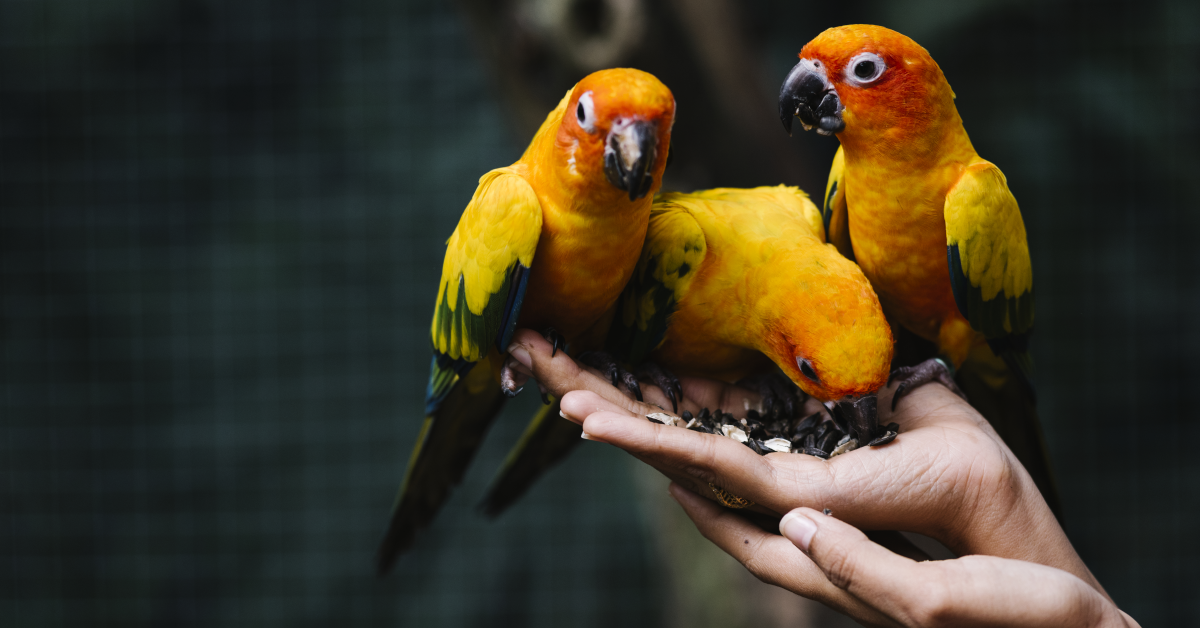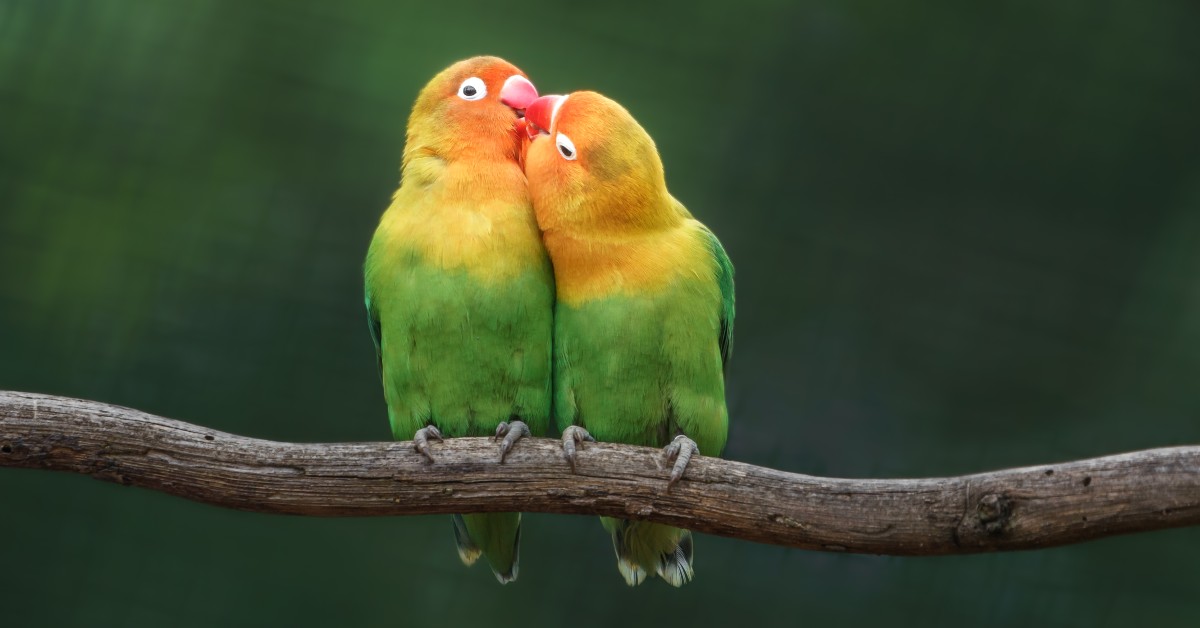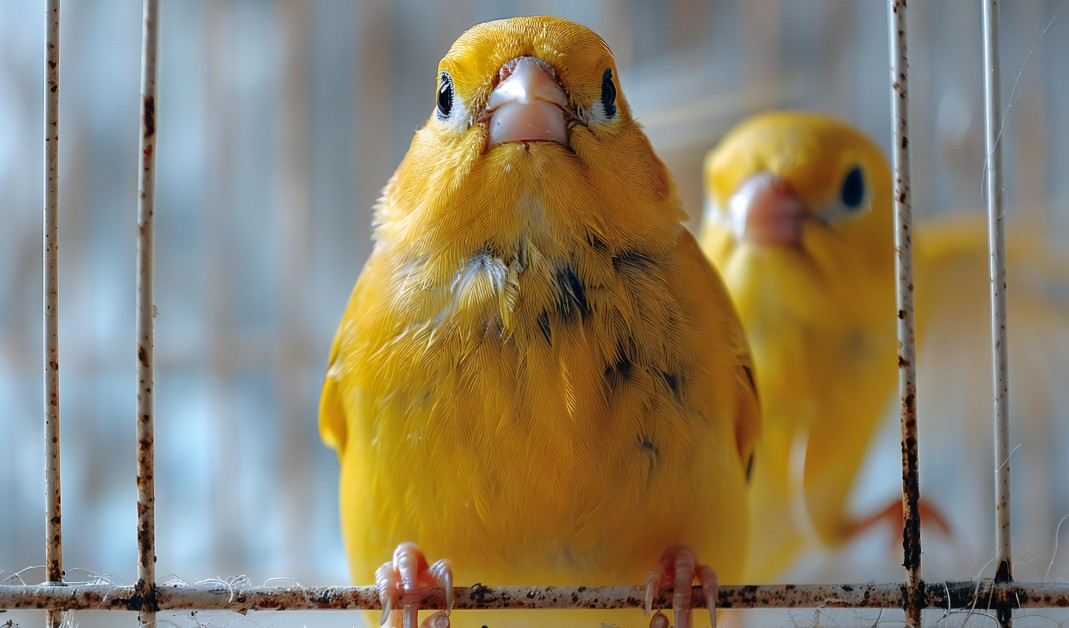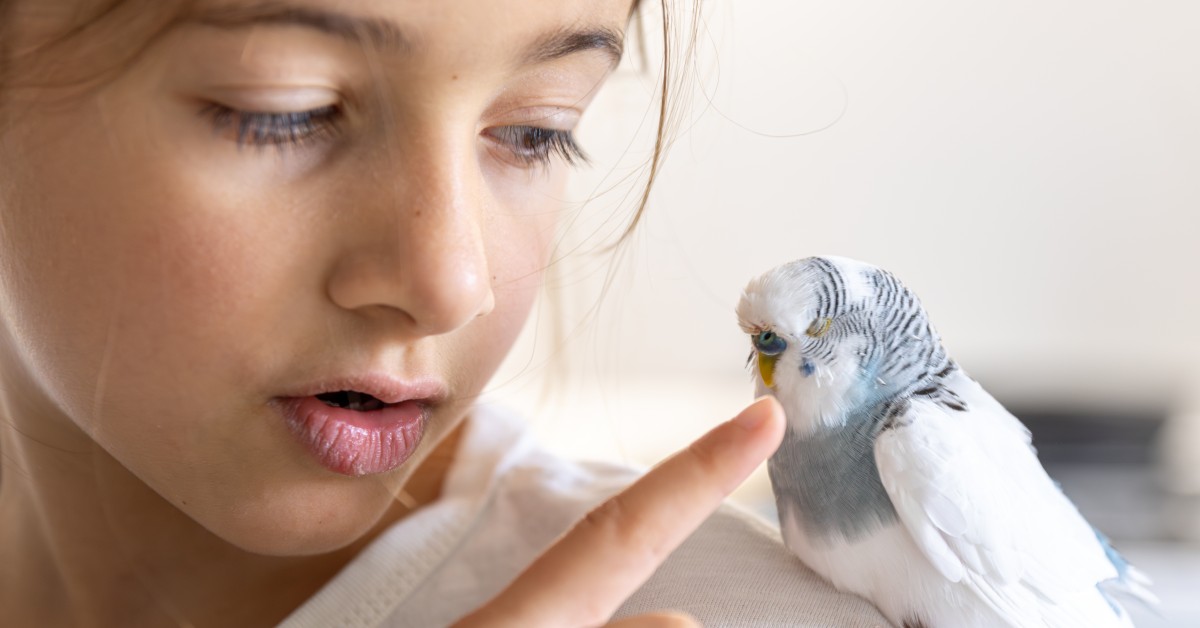How to Keep Your Pet Bird Happy, Healthy, and Safe
Understand the basic dos and don’ts for keeping your pet bird happy and healthy.

You’ve just come home from the pet store and are now the proud parent of a bird, most probably one of the parrot species, as they are the most popular type of pet bird. But caring for a bird is complicated and takes time and commitment. Consider: birds are messy – parrots like to throw their food all over the place – namely, outside the cage. Also consider: some parrots can be loud, very loud. Also, birds need a varied diet, regular grooming, and plenty of time outside their cage. Here are the detailed dos and don’ts for your bird to be a happy and healthy companion for the long haul.
Which Birds Are Parrots?
The following birds fall under the parrot species and share many characteristics in common:
- Budgies
- Love birds
- Cockatiels
- Conures
- Amazons
- Macaws
- Cockatoos
- African Greys
One of the main things they have in common is that, for a pet, they can live a long time, ranging anywhere from 20 to up to 80 years. All parrot species also share a hooked beak.
Which Birds Are Not Parrots?
Other breeds of birds that are popular as pets include the following:
- Canaries
- Finches
- Doves
- Toucans
Diet
A wide variety of pre-packaged seed and pellet food for birds are available, which you can purchase online or at the local pet store. Be careful how much seed you feed because they are loaded with fat, and once accustomed to them, your bird may not want to eat anything else. Seed is great as a special treat but stay away from using it as a diet staple.
Many birds want to eat what you’re eating. If you’re munching away on an apple and your bird arrives on your shoulder, begging for a nibble – fine. But if you want a piece of cheese, don’t do so in front of your bird.
The best foods for your bird are the fresh kind: fresh fruits and vegetables. Also, give him protein once a week. Some good choices are hard-boiled or scrambled eggs and cooked meat. If your bird is smaller, be sure to chop up the foods into bite-sized chunks.
Some foods are deathly toxic to your bird and should be avoided at all costs. These include alcohol, avocado, tapioca, dairy products, chocolate, peanuts, and fruit seeds and pits.
Habitat
Most birds have one or two cages that they spend a certain amount of time in. Some people have 2, so they have a separate, toy-free cage for the bird to sleep in. Do avoid keeping your bird in the cage all the time as he may become cage aggressive and unsocialized. The cage should be wide enough so that he can flap his wings easily. He’ll also need lots of toys to occupy him and rotate the toys often. Be sure to clean the floor bedding every or every other day and give the cage a thorough cleaning once weekly with a safe cleaner such as vinegar.
Training
Don’t get discouraged because training your bird and having him bond with you will take time. The first “trick” you need to teach him is “Step Up” and “Step Down” on and off your finger. Always focus on positive behavior when you’re training him. If he does something negative or outside your boundary, turn your back to him and walk away. Get him used to other people handling him; otherwise, if you are unable to care for him for some reason, he may not allow someone else to handle him.
Things for You to Totally Avoid
Don’t Smoke
Smoke is dangerous for all living creatures, but a bird can develop pneumonia in a smoky environment. This can lead to bacterial infections and even cancer. Also, birds are naturally curious, especially parrots, so a cigarette butt may be too enticing to pass up.
Don’t Cook with Your Bird
Your bird may love to hang out on your shoulder, but your kitchen should be off-limits no matter what. Think of the dangers when you have boiling water or are frying something. Never use nonstick cookware around your bird because the fumes it gives off when heated are toxic. Another kitchen no-no is setting your oven to self-clean. This is not a good idea in general, but if you do, ventilate and open windows to disperse the concentration of fumes.
Avoid Cleaning Agents
Commercial cleaning products involving insecticides, ammonia, bleach, oven cleaners, and other agents can make your bird very ill. Look up some safe cleaning formulas on the Internet. Vinegar will almost always be the main ingredient.
Party Time? Not.
Small parties are none too threatening, but a big gala event can be problematic. If alcohol is present, people can become careless and release your bird, pet him, feed him poisonous foods, and more. Your bird may become scared and unhappy and decide to cope by giving someone a great big bite.
Beware of Your Talking Bird
If you have a talking bird, you could be in for some embarrassing moments. Birds like to be the center of your attention, and if you are on the phone, they are not at that center. Commonly, he may decide to inject himself into your conversation in awkward (for you) ways. Likewise, you might want to avoid swearing because… well, you know where that’s going.
Birds are extraordinarily delightful and engaging pets, but they also require meticulous care and considerable time for training and bonding. In addition, some household accommodations are required to keep them safe. On the other hand, when your bird does bond with you, you will have a dear and devoted companion for many, many years.
Ready to start saving money on pet wellness care?
Then take a look at Mint Wellness, the pet wellness plan that provides fast reimbursement on routine pet care. Save on vaccinations, wellness exams, preventatives, dental, and more!
Learn More


